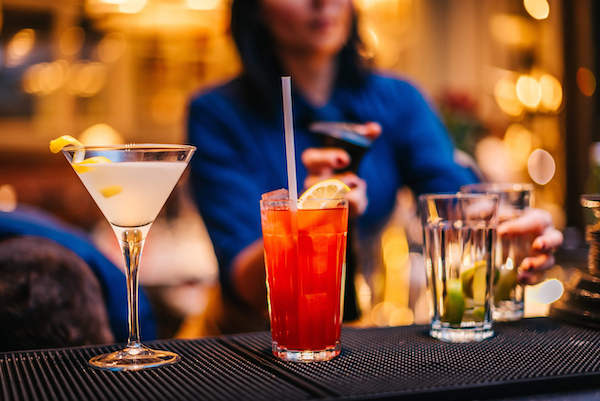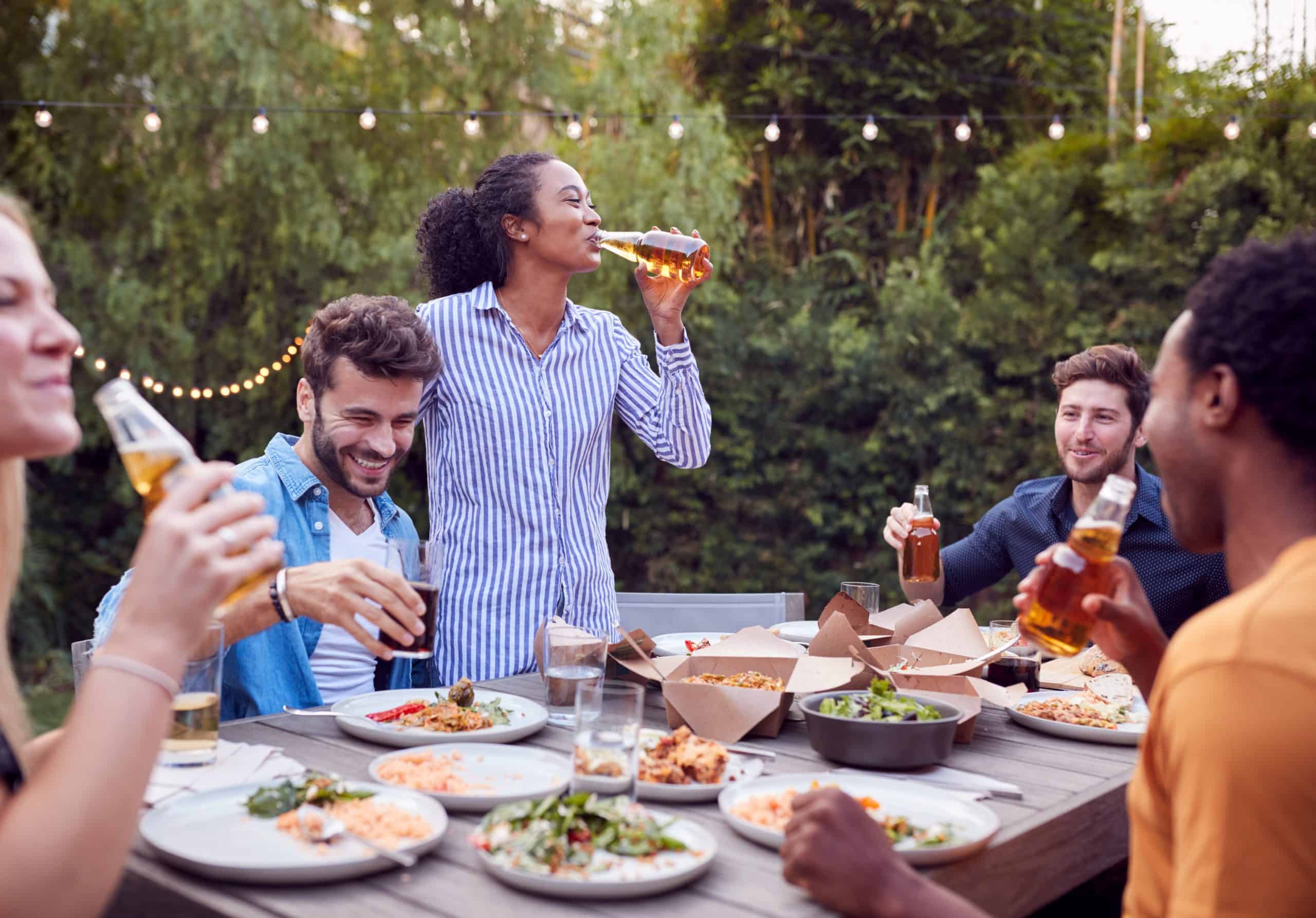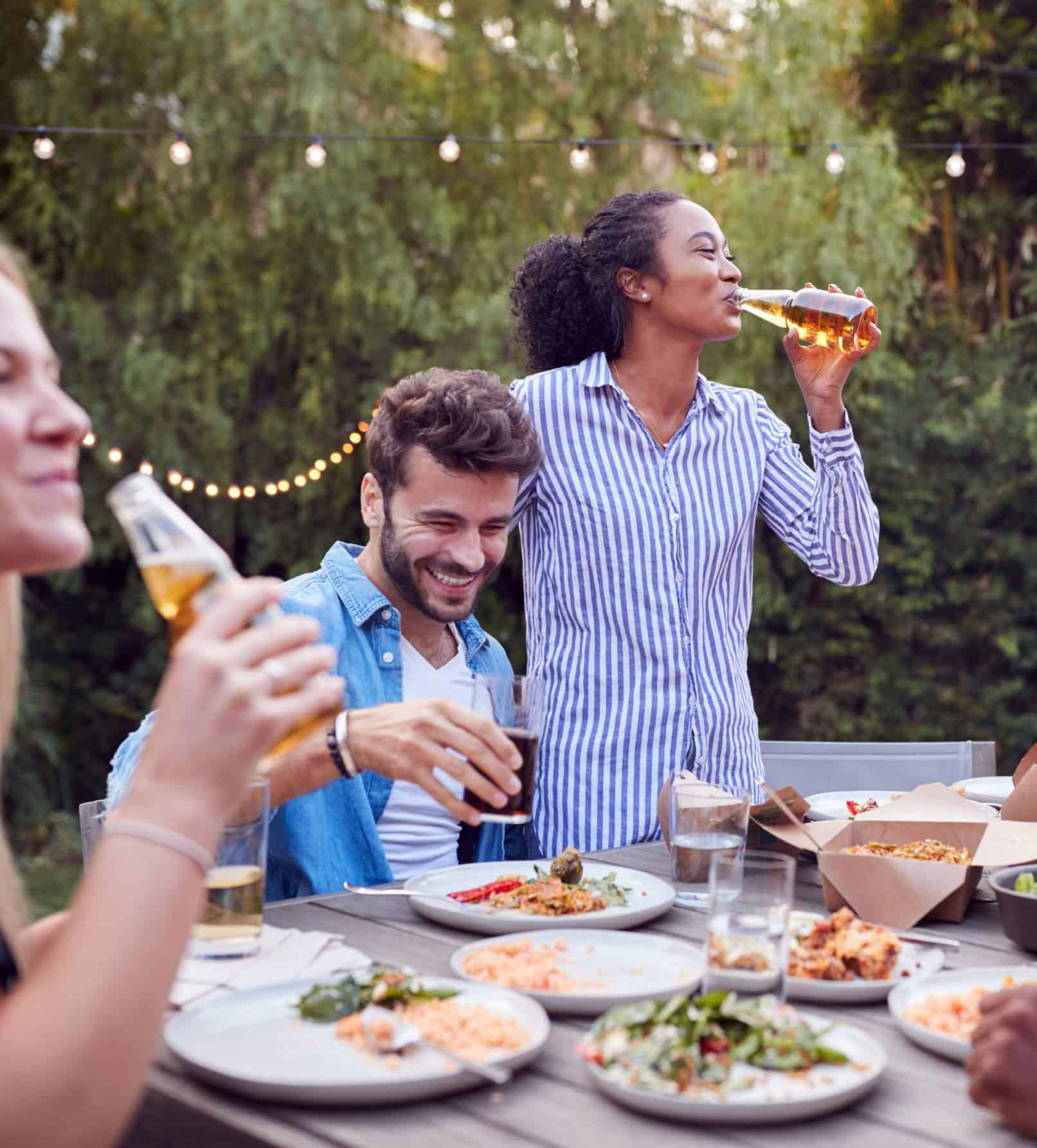Responsible Drinking Quiz (RDQ)
Moderate Drinking: What do YOU know?
Take the RDQ and find out!
How much do you know about alcohol?

Let’s see how you do!
Hmm, what actually is alcohol?
Select the correct answer
That's correct!
Ethanol, the substance that makes you intoxicated, results from the fermentation of sugar by yeast. When you are sipping a drink you are ingesting ethanol, the main psychoactive ingredient in alcoholic beverages.
Not quite...
Ethanol, the substance that makes you intoxicated, results from the fermentation of sugar by yeast. When you are sipping a drink you are ingesting ethanol, the main psychoactive ingredient in alcoholic beverages.
Which of these contains the most alcohol?
Select the correct answer
You're on it!
A serving size corresponds on average to one “unit of alcohol” containing roughly 10 grams of ethanol. It’s the quantity of pure ethanol in the bloodstream that counts. When you drink a small glass of wine, a shot of vodka or a small beer, you ingest exactly the same amount of alcohol.
Nearly... they all contain the same!
A serving size corresponds on average to one “unit of alcohol” containing roughly 10 grams of ethanol. It’s the quantity of pure ethanol in the bloodstream that counts. When you drink a small glass of wine, a shot of vodka or a small beer, you ingest exactly the same amount of alcohol.
Before you drink you should...
Select all those that apply
Well done! Excellent knowledge.
Eating slows down the rate at which alcohol is absorbed into the bloodstream by keeping it in the stomach longer. Water keeps you hydrated. Always plan your route home - never drive impaired.
Nearly...
Eating slows down the rate at which alcohol is absorbed into the bloodstream by keeping it in the stomach longer. Water keeps you hydrated. Always plan your route home - never drive impaired.
Do you know the recommended low-risk drinking guidelines in your country?
Drag to reveal the content


Mixing beer, wine and spirits will get you drunk more quickly.
Select the correct answer
This is a common myth.
Alcohol is alcohol, whether it comes from beer, wine or spirits. The effect is determined by how much you drink, not what you drink.
This is a common myth.
Alcohol is alcohol, whether it comes from beer, wine or spirits. The effect is determined by how much you drink, not what you drink.
Most of the alcohol you drink is broken down by the . It takes about minutes for it to break down one unit of alcohol.
Drag the missing words to form the correct sentences
That's correct!
The liver breaks down most of the alcohol you drink into carbon dioxide and water. The liver can process up to one standard drink of alcohol (+/-10g of ethanol) every hour. There’s nothing you can do to speed this up. This explains why someone who has drunk a lot the night before can still be ‘over the limit’ the next morning.
Not quite...
The liver breaks down most of the alcohol you drink into carbon dioxide and water. The liver can process up to one standard drink of alcohol (+/-10g of ethanol) every hour. There’s nothing you can do to speed this up. This explains why someone who has drunk a lot the night before can still be ‘over the limit’ the next morning.
Alcohol consumption affects women more than men?
Fact or myth?


Fact!
Sorry ladies, but women can’t drink as much as men. That’s not a male conspiracy theory but a biological fact!
Women have less body water than men so the concentration of alcohol in their bloodstream is proportionally higher. So, if a woman weighing 60kgs drinks a double vodka then a man of the same size will need to drink a triple in order to reach the same blood alcohol level. There is also some evidence that women break down alcohol slightly differently.
What’s the best way to get rid of alcohol in your body?
Drag statements to their labels


That's correct!
The only best way to get rid of the alcohol in your body is giving it enough time. Sport, sleeping, eating will not diminish the alcohol level in your blood. Your liver needs about 1 hour to eliminate one unit of alcohol. However, drinking on a full stomach is important because it will slow down alcohol absorption.
Not quite...
The only best way to get rid of the alcohol in your body is giving it enough time. Sport, sleeping, eating will not diminish the alcohol level in your blood. Your liver needs about 1 hour to eliminate one unit of alcohol. However, drinking on a full stomach is important because it will slow down alcohol absorption.
How many calories are there in your favourite standard drink?
(+/- 10g of ethanol)Drag the statements to their correct places




Superstar
- SPIRITS (30ml at 40%) = ± 66 Kcal with variation between some dark & white spirits
- CHAMPAGNE (100ml at 12%) = ± 76 Kcal** with variation between brut or semi-brut
- WINE (100ml at 13%) = ± 83 Kcal with variation between dry & sweet wine
- BEER (250ml at 5%) = ± 106 Kcal with variation between types of beer (e.g. ale, lager, stout, ...)
The calories contained in alcoholic beverages mainly come from ethanol (alcohol). There are 7 calories in 1g of ethanol. Note that some spirits drinks (such as liqueurs) have by definition a certain quantity of sugar (4 calories in 1g of sugar). Similarly, the soft drinks and ingredients you choose to add to a cocktail will impact the total calorie intake.
Ahh nearly... better check those answers
- SPIRITS (30ml at 40%) = ± 66 Kcal with variation between some dark & white spirits
- CHAMPAGNE (100ml at 12%) = ± 76 Kcal** with variation between brut or semi-brut
- WINE (100ml at 13%) = ± 83 Kcal with variation between dry & sweet wine
- BEER (250ml at 5%) = ± 106 Kcal with variation between types of beer (e.g. ale, lager, stout, ...)
The calories contained in alcoholic beverages mainly come from ethanol (alcohol). There are 7 calories in 1g of ethanol. Note that some spirits drinks (such as liqueurs) have by definition a certain quantity of sugar (4 calories in 1g of sugar). Similarly, the soft drinks and ingredients you choose to add to a cocktail will impact the total calorie intake.
Party Tips
As a host, there are many things you can do to be a responsible one.

Hint: You'll need to find all of them before you can proceed.



Find all the tips before proceeding..
Globally, rates of binge drinking amongst young adults are increasing
Select the correct answer
You're correct... it's false
Heavy episodic drinking rates are decreasing but we have to remain vigilant. Everyone has a role to play in promoting and exercising moderation for the benefit of all.
Source: Between 2010 and 2016, heavy episodic drinking by age 15+ went down by 26% / aged 15–19: down by 28% / aged 20–24: down by 23% (WHO Status report on alcohol consumption, harm and policy responses in 30 European countries 2019)
Actually, it's false!
Heavy episodic drinking rates are decreasing but we have to remain vigilant. Everyone has a role to play in promoting and exercising moderation for the benefit of all.
Source: Between 2010 and 2016, heavy episodic drinking by age 15+ went down by 26% / aged 15–19: down by 28% / aged 20–24: down by 23% (WHO Status report on alcohol consumption, harm and policy responses in 30 European countries 2019)
Congratulations!
Whether you’re pretty aware about alcohol and drinking, or are a bit rusty on some of the facts you might want to learn more by visiting this website which has useful information to help you enjoy drinking responsibly and safely!